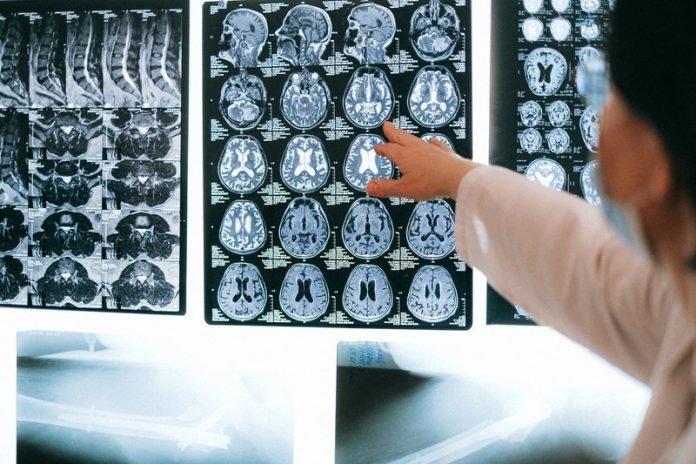
In a new study from Johns Hopkins Medicine, researchers looked for ways to image the human brain for the earliest signs of aging and cognitive decline.
They identified a pattern that links the accumulation of amyloid beta (Aβ) proteins (associated with cognitive decline later in life) with a reduction of serotonin, the brain chemical that improves mood.
The pattern may help predict if a person is likely to develop depression later in life.
The new findings suggest that the more a person expresses this pattern, the more severe the depression might be.
Late-life depression, one of the most common psychiatric disorders among older people, refers to a major depressive episode—in some cases for the first time.
According to the American Geriatrics Society’s Health in Aging Foundation, between 1% and 2% of American adults over age 65 have major depression—with more women than men reporting they are depressed.
However, society suggests that the numbers may actually be higher because older adults are less likely than younger people to admit, or even realize, they are depressed. Late-life depression is associated with a greater risk for cognitive decline.
In the study, the researchers analyzed data collected from 40 participants over age 60 who were evenly split between men and women.
Of the participants, 20 were unmedicated and were experiencing late-life depression without bipolar or psychotic symptoms. Their data were compared with those from a control group of 20 healthy, nondepressed older adults.
The data collected from the PET scans were then analyzed using a mathematical formula that identified a pattern showing how Aβ accumulation relates to 5-HTT, a protein that regulates the amount of serotonin in nerve cells.
The pattern was much higher in the late-life depression group, indicating that a decrease in 5-HTT is linked to higher levels of Aβ in different areas of the brain—and in turn, to depression.
The researchers also found for all study participants, the more that the decreased serotonin/increased Aβ pattern was seen, the greater were the depressive symptoms.
Lower serotonin were previously linked to depression. Therefore, selective serotonin reuptake inhibitors—antidepressants that increase the amount of the brain chemical to a more normal level—have been prescribed for the treatment of major depressive disorders, anxiety disorders and other psychological conditions.
This work reinforces the role of serotonin in late-life depression and the proteins associated with memory loss.
If you care about depression and mental health, please read studies about women with this health problem twice as likely to suffer depression and findings of newer drugs for depression may increase death risk.
For more information about mental disease prevention and treatment, please see recent studies about this nutrient in your diet may help fight depression and results showing the world’s first test to accurately predict depression and bipolar disorder.
The study is published in the journal Translational Psychiatry. One author of the study is Gwenn Smith, Ph.D.
Copyright © 2021 Knowridge Science Report. All rights reserved.



